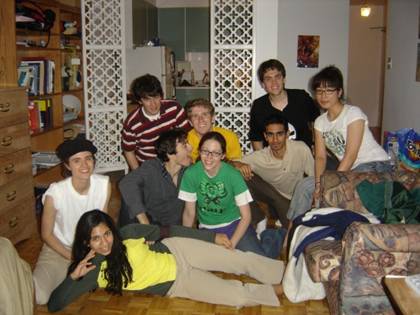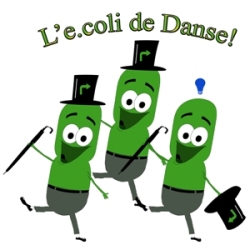From 2006.igem.org
(Difference between revisions)
|
|
| Line 29: |
Line 29: |
| | [[Results|Results]] | | [[Results|Results]] |
| | | | |
| - | [[Future Prospects|Future Prospects]] | + | [[Conclusions and Future Work|Future Prospects]] |
| | | | |
| | </td> | | </td> |
Revision as of 20:18, 31 October 2006

Welcome to the McGill Wiki!
Basically, we're a team of 12 undergrads, 1 grad student, and 1 professor who like to have fun and clone things in our spare time. McGill University is located in Montreal, Quebec, which has given us wonderful opportunities to balance lab work with festivals and general craziness. iGEM has been a great opportunity to get lab experience while having the freedom to be creative, and we look forward to meeting the other teams at the jamboree!
 
Projects
This project on fluorescence complementation involves the joining of two proteins, Jun and Fos, each fused to a half terminus of YFP. Both of these chimeric proteins were fused to a beta gene that codes for a membrane protein. Then, two cell populations - one expressing Jun-beta-YFPN and the other Fos-beta-YFPC - were combined, ideally resulting in the fusion of the Jun and Fos proteins on the cell membrane. The two halves of the YFP protein would bind as well, giving rise to fluorescence.
Background
Methods and Materials
Results
Future Prospects
|
Our project is based on the repressilator system coupled to quorum sensing as described by Jordi Garcia-Ojalvo, Michael B. Elowitz and Steven H. Strogatz in "Modeling a synthetic multicellular clock: Repressilators coupled by quorum sensing" (PNAS). We attempt to visualize the synchronization of the oscillatory phase between cells by the addition of the CFP reporter gene. We expand on this theory by placing cI under the control of pLac, hoping that this would assist in synchronizing the oscillations.
Theory Behind the Oscillator
Methods and Materials
Results
|
Lab Procedures
Club Just for Fun
|




